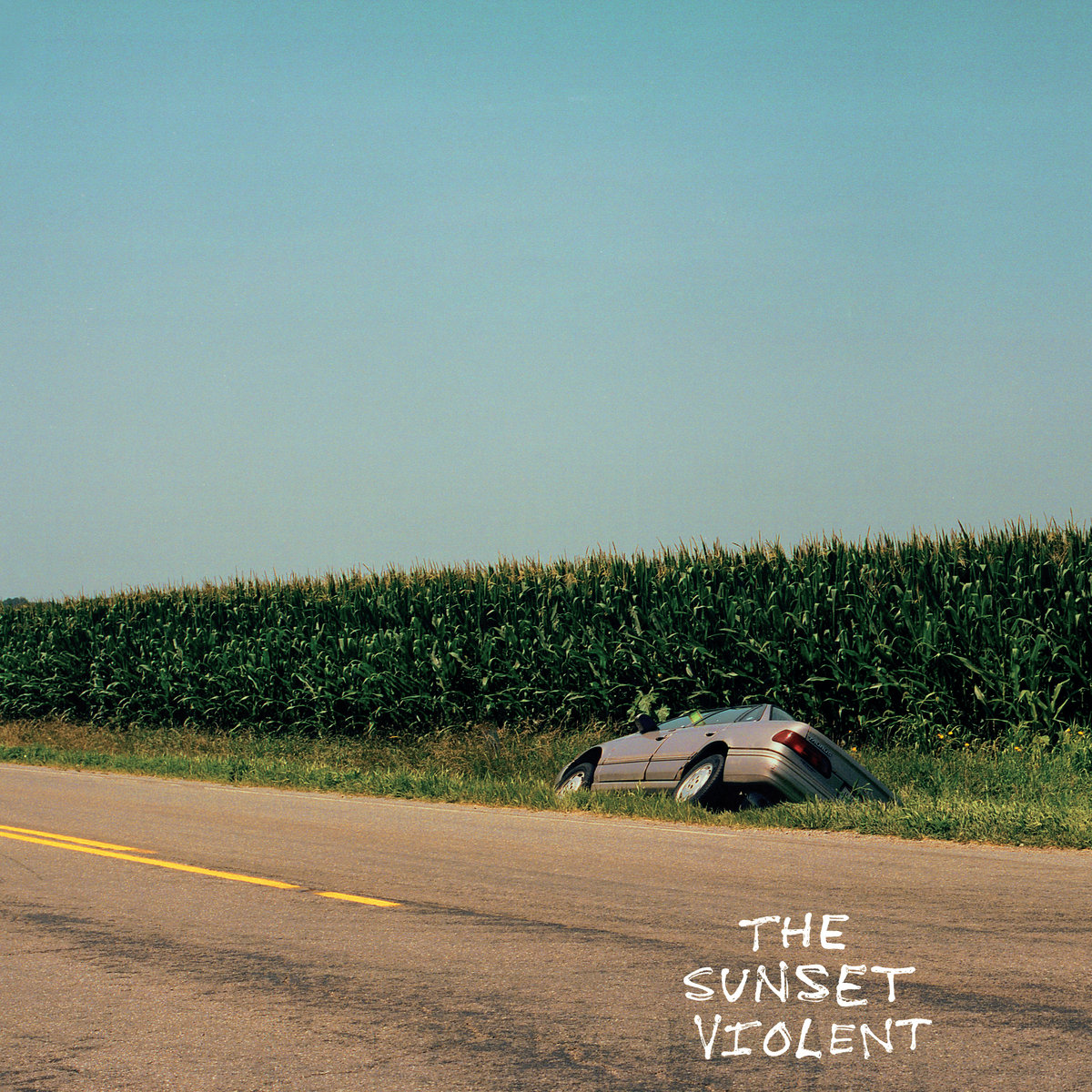Mount Kimbie – The Sunset Violent
ALBUM OF THE WEEK

Here’s a thought experiment: if Mount Kimbie’s history wasn’t already known, and you had to imagine one that explains the contents of The Sunset Violent, what would it look like? A musically literate post-punk group going up through the gears of songwriting complexity over a series of albums, perhaps? Maybe a familiar story of a conventional rock band embracing the digital fringes of their genre a little more with each release? Both sound convincing, and would match the record’s sound. Whatever you came up with, though, there’d have to be a lot of monkeys clacking away at a lot of typewriters before you stumbled upon the true story: that of a shadowy dubstep production duo, Dom Maker and Kai Campos, spinning together sawtooth sub-bass and sped-up vocals in the late noughties, before gradually adding instruments, performers and live singers until, four albums in, a relatively traditional-sounding rock four-piece emerges – one with synthy tendencies, sure, and certainly experimental impulses, but also one with earworm melodies and big choruses apt for large spaces.
All of which is a roundabout way to say that Mount Kimbie have come a long way in the 15 years since their first two EPs got everyone scurrying to messageboards to discuss what exactly constituted “post-dubstep”: The Sunset Violent, their fourth studio album in that time, and first to include vocalist/multi-instrumentalist Andrea Balency-Béarn and Marc Pell (aka Suitman Jungle) as full members, is an ambitious and carefully constructed record that feels far grander than its modest 37 minutes would suggest, full of compelling, forward-facing rock music made up of compositionally complex but still accessible songs. It’s also the band’s best yet.
The intent seems there from the off: virtually the first sound on the album is that of a fuzzed-out guitar being furiously scrubbed over motorik ride cymbal hits, and as the rest of the group arrive over the following minute – a filled-out drum kit, some wordless female singing, a rubbery bass guitar, washes of keyboards – a scene is set by this three-minute overture of a band in a room playing music together, responding to one another’s performances as they go. Sure, imaginative production tweaks abound – it’s clear straight away that this is an album made by producers with a fondness for sonic manipulation, miles from any Albini-style pureism – but nothing here sounds overtly synthetic or unplayable. Indeed, so powerful is that painted opening scene that even when The Sunset Violent’s first song proper, ‘Dumb Guitar’, begins with an oscillating synth pattern reminiscent of some of Mount Kimbie’s earliest material, there’s still an anticipation of guitar–bass–drums before they appear, and the effect is similar to what Radiohead perfected on In Rainbows: a rocktronica hybrid that has all the dizzying futurism of machined music right alongside the earthy authenticity of a straight-up band, albeit one pushing themselves to write as unconventionally as their apparent hardwired pop sensibilities will permit, all metric fakeouts and long, lush melancholic codas rubbing up alongside addictive toplines and riffs.
A less confident, perhaps younger group might feel the need to offer call-backs to earlier material, but one of the most appealing aspects of The Sunset Violent is how assured the band sound in their new guise as a quartet. Mid-album vignette ‘Got Me’, all dubby, trip-hop head-nods, is the only retrospective moment here, but its positioning and duration as a mid-album breather gone in less than 150 seconds only accentuates the development that surrounds it. Otherwise, it’s all of a satisfyingly coherent piece: treated guitars, sine-wave synths and sweetly sung backing coos like Stereolab at their krautiest, tight, no-nonsense acoustic drums, and an approach to songwriting that sprinkles twists of sophistication on pleasingly clean foundations.
That recipe is best realised on closer ‘Empty and Silent’, a final bright burst of cyclical guitar chords, heavenly voices and synth sparkles at the end of a record where you sense the players are really enjoying themselves. Indeed, in its own idiosyncratic way, that track becomes a microcosm of the album that’s preceded it and, by doing so, encourages an immediate return to track one as soon as it ends, rendering The Sunset Violent, an album of already hooky songs, as a moreish monolith in and of itself.
Just as well, too: this isn’t an album that stands up to repeat spins just because it’s full of good tunes (although it is exactly that) – it’s also one that reveals slightly more about itself with each listen: after all, if you were told on first play that the record was made in a disused Manchester mill with a Factory Records post-punk demigod at the controls, you wouldn’t question it. By the fifth, though, or tenth, its true making-of story – recorded in a southern California desert town built in the 1960s as a bolthole for Hollywood royalty and co-produced by the band’s core duo who now separately immerse themselves in the LA hip-hop world and European analogue techno – is more believable: a quiet, off-beat and low-key luxury sunniness shines through the initial post-punk gloom, and although this is indisputably a guitar-first band album, enough production flourishes push through the layers to suggest the influence of a far broader genre spread.
In that way then, perhaps The Sunset Violent is actually better at obscuring its truths than might first meet the eye, and maybe appropriately so, too: while few in 2009 clutching their 12-inches of Sketch on Glass could’ve predicted that this is where Mount Kimbie would’ve found themselves in 2024, potentially the greatest lesson to take from The Sunset Violent is never to rule anything out.